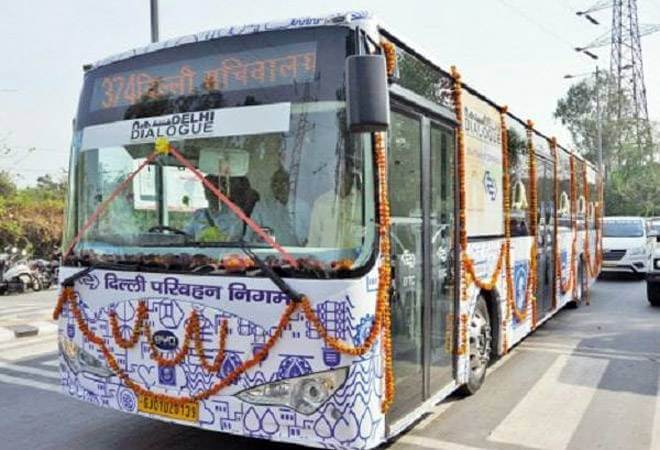On 7th August 2020, Delhi Chief Minister Shri Arvind Kejriwal launched the Delhi Electric Vehicle Policy 2020 (Delhi EV Policy 2020) with an aim to aimed to boost the economy, creating jobs and reduce air pollution in the national capital. In December 2019, the Council of Ministers, Government of NCT of Delhi approved the Delhi Electric Vehicles Policy, this policy was notified on 7th August 2020 and seeks to put in place a comprehensive set of measures for giving impetus to the adoption of Electric Vehicles.
Vision & Objectives of Delhi EV Policy 2020
The primary objective of the Delhi Electric Vehicle Policy, 2020 is to establish Delhi as the EV capital of India and accelerate the pace of EV adoption across vehicle segments, especially in the mass category of two wheelers, public/ shared transport vehicles and goods carriers.
- The policy shall seek to drive rapid adoption of Battery Electric Vehicles (BEVs) so that they contribute to 25% of all new vehicle registrations by 2024 and bring about a material improvement in Delhi’s environment by bringing down emissions from the transport sector.
- The Policy will also seek to put in place measures to support the creation of jobs in driving, selling, financing, servicing and charging of Electric Vehicles.
Duration of Delhi EV Policy 2020:
The Delhi Electric Vehicle Policy, 2020, shall remain valid for a period of three years from the date of issue of this policy.
Salient Features of Delhi Electric Vehicle Policy 2020
Incentives:
- The Fiscal Incentives being offered under the policy would be in addition to the demand incentives available in the FAME India Phase-II scheme of Government of India.
- Under the scheme, Rs 30,000 would be given as purchase incentives to those buying electric two-wheelers, e-rickshaws, and goods carriers while incentives ranging between Rs 10,000 and Rs 1,50,000 would be given to people buying electric cars.
- A purchase incentive of Rs. 5,000/- per kWh of battery capacity shall be provided per vehicle to the registered owner and subject to maximum incentive ofRs. 30,000/- per vehicle.
- A grant of 100% for the purchase of charging equipment up to ₹6,000 per charging point for the first 30,000 charging points.

Electric-autos:
- An open permit will be applicable for e-autos wherein permits will be given on the first-come-first-serve basis.
Electric Buses:
- The state government will be looking at the substantial addition of buses to the public transport fleet in the period 2019-2022.
- The policy seeks pure electric buses to constitute at least 50% of all new stage carriage buses procured for the city fleet, starting with the induction of 1000 pure electric buses by 2020.
E-Cars:
- A Purchase Incentive of Rs. 10,000/- per kWh of battery capacity shall be provided per electric four-wheeler (subject to a maximum incentive of Rs.1,50,000/- per vehicle) to the registered owners of the first 1000 e-cars to be registered in Delhi after the issuance of this policy
Policy Implementation:
- The Transport Department, GNCTD shall be the nodal department for the implementation of this Policy.
- A dedicated EV cell shall be established within the Transport Department for effective day-to-day implementation.
- A State Electric Vehicle Board shall be constituted by the GNCTD as the apex body for effective implementation Delhi EV Policy 2020.
References:
- Delhi Electric Vehicle Policy 2020 – Download PDF

